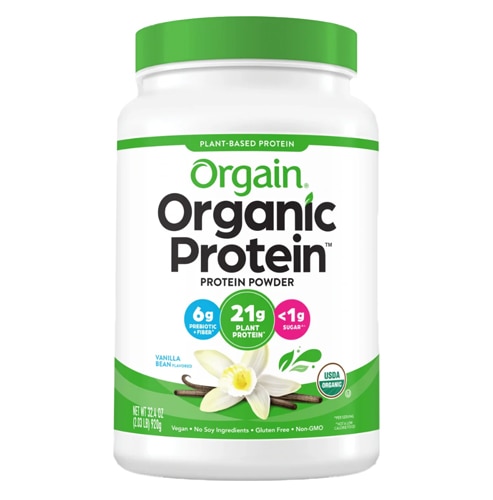A lot goes into a great workout, because you’re asking for a lot in return. In fact, every workout requires a certain amount of energy, focus, stamina, muscle strength, fat metabolism and recovery. You may already rely on certain supplements to support a few of these elements, such as a pre-workout to give you a nice boost or an amino acid complex to aid muscle repair. But have you looked closely at the ingredients in those formulas? Go down the list and you might see sucralose, red dye #40 or words you can’t even pronounce. When you put so much demand on your body, you should feel good about what you put in it. Gather your gamut of supplements and get ready to swap some out for more natural options – it’s easier than you think.
My body knows how to process clean ingredients – I can feel the difference – which is why I make it a point to choose natural sports nutrition whenever possible. But if you’re a little hesitant, start with some of the basics…

Before you work out:
Pre-workouts with herbal blends
Pre-workouts are meant to help you get in “attack” mode, so you’re ready to rock the weight room the second you step foot in the door. Unfortunately, that often means these formulas come with a side of man-made stimulants. Smart alternatives to seek out include herbal pick-me-ups, including green tea extract, coco extract, green coffee bean extract and yerba mate. Green coffee bean and yerba mate are natural sources of caffeine. Bonus: herbal extracts, like green tea, may also provide antioxidant support.†
Trainer pick: ARO 3X Clean Series Pre-Workout Concentrate features an energy blend of guarana, green coffee bean, yerba mate and more!†
Throughout the day:
Creatine in monohydrate form
Creatine is a non-essential amino acid, because your body naturally produces it. Creatine is most useful for high-intensity training or explosive exercises, because it is converted into phosphocreatine and eventually becomes ATP (your body’s primary source of energy). Perhaps one of the biggest benefits for some is creatine’s ability to “fill” muscles. It pulls water into muscle cells, which spurs protein synthesis. There are many forms of creatine, but monohydrate was the first form ever created. Many other types of creatine, like ethyl ester (CEE) and liquid creatine, break down too quickly. Some companies even add unnecessary extras that haven’t been well studied to prove there’s a difference in performance. When shopping for creatine supplements, choose the purest form possible – monohydrate – and look for at least 1,000 mg (1 gram) per serving.
Trainer pick: ARO Black Series Creatine Raw Unflavored is micronized, so it’s easy to mix and easy to absorb.
Post-workout:
Beta-alanine as CarnoSyn®
Beta alanine may be another non-essential amino acid, but it is essential for the synthesis of muscle carnosine. When exercising, you’re breaking down glucose and glycogen, which causes a buildup of hydrogen ions that cause your muscles to become more acidic. Carnosine acts as a buffer during this process, helping to delay muscle fatigue.† In order to produce carnosine, though, your body needs beta-alanine first. CarnoSyn® is a trademarked form of beta-alanine that has the studies to back up its performance. Look for this specific type and at least 1,500 mg of beta-alanine to support your muscle-recovery efforts.†
Trainer pick: Optimum Nutrition Beta-Alanine Unflavored provides 1.6 g beta-alanine.
Sugar alert!
Admit: if it doesn’t taste good, you won’t drink it. That’s why sweeteners are so important for adding flavor to many of your must-have sports supplements. Unfortunately, sucralose and other artificial sugar substitutes often make top of the list. From now on, check labels for plant-based sweeteners such as agave and stevia.
Agave nectar comes from the agave plant and is about 1 ½ times sweeter than sugar, so you can use less to achieve the same level of sweetness. Another benefit is agave is low on the glycemic index, which means it’s broken down in the digestive system at a slower rate. Stevia is also derived from a plant (Stevia rebaudiana). Though it tastes much sweeter than cane sugar, it has zero calories. Keep an eye out for any ingredient ending in ‘ose’ and opt for these plant-based sources, instead – your body will thank you!
†These statements have not been evaluated by the Food and Drug Administration. This product is not intended to diagnose, treat, cure or prevent any disease.




